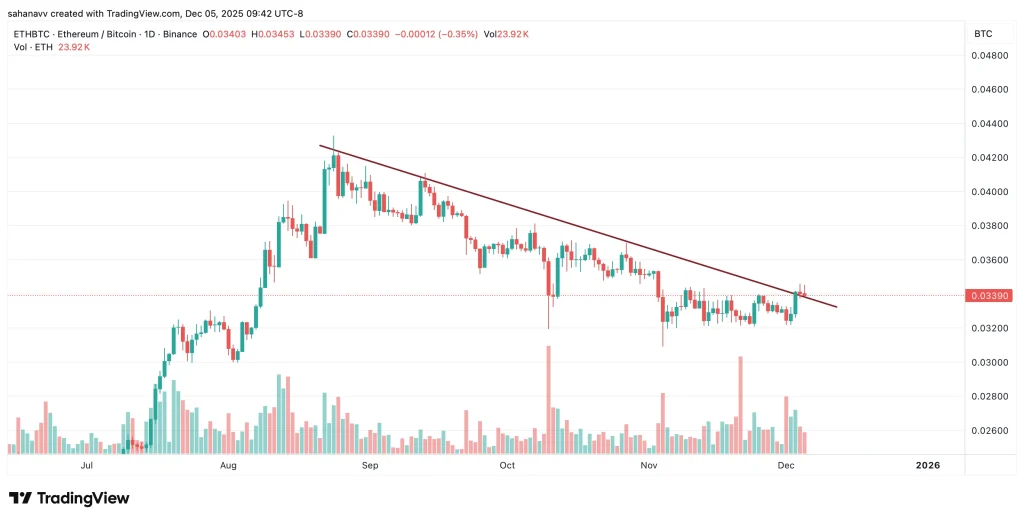Solana News Today: Pump.fun Buys Back $62M in Tokens as Legal Storm Brews Over Meme Market Scheme
- Pump.fun spent $62.6M repurchasing 16.5B PUMP tokens to reduce sell pressure and stabilize prices, funded by platform fees from memecoin launches. - Legal challenges emerged as a class-action lawsuit accuses the platform of "unlicensed casino" tactics, claiming $5.5B in investor losses and demanding regulatory compliance. - Despite competition from rivals like LetsBonk and Uniswap, Pump.fun maintains 73% Solana memecoin market share with 70K+ unique holders and rising retail participation. - Platform rev
Pump.fun, the Solana-based memecoin launchpad, has spent over $62.6 million repurchasing its native token, PUMP, according to onchain analytics. The buyback program has absorbed 16.5 billion tokens at an average price of $0.003785, with daily repurchases ranging between $1.3 million and $2.3 million over the past week. These buybacks are funded by platform revenue, which is primarily derived from fees collected when users launch memecoins. The buyback strategy aims to reduce sell pressure and stabilize PUMP’s price. Data from Dune Analytics indicates that Pump.fun has generated more than $775 million in total revenue since its launch in January 2023, though it experienced a sharp revenue drop in late July, bringing in only $1.72 million in weekly revenue, its lowest since March 2024. At its peak in May, the platform saw weekly revenue exceed $56 million, coinciding with a broader surge in Solana memecoins.
Market activity and token performance suggest the buyback strategy is having a positive impact. PUMP has risen more than 12% in the past month and over 9% in the last week, currently trading at $0.003522, which is 54% above its August low of $0.002282. Onchain data also reveals a growing base of unique PUMP holders, with the count now surpassing 70,800. Smaller wallets, holding under 10,000 tokens, now make up nearly half of the token distribution, indicating increased retail participation. Blockchain explorers show that daily active user activity has nearly doubled since May, averaging 48,000 active users compared to 25,000 earlier in the year.
However, Pump.fun has faced growing competition in the Solana memecoin launchpad space. In July, a new platform called LetsBonk briefly overtook Pump.fun in terms of 24-hour revenue and market share. Aggregator data from Jupiter shows that Pump.fun has since reclaimed the No. 1 position in the last seven days, with a 73% market share and $4.5 billion in trading volume. In contrast, LetsBonk’s market share has fallen to less than 9%, with $543 million in volume. Pump.fun’s largest competitor outside of Solana remains the Ethereum-based Uniswap ecosystem, which has handled over $12 billion in weekly volume for meme-token pairs. Yet, Solana’s lower fees and faster transaction speeds have made it more attractive to retail traders.
Despite its market success, Pump.fun is now facing a major legal challenge. A class-action lawsuit was filed in January 2024, accusing the platform of using aggressive marketing tactics to create artificial demand for volatile tokens. The lawsuit, which was amended in July, likens Pump.fun to an “unlicensed casino” and describes its structure as a “rigged slot machine,” suggesting early participants profit by selling tokens to later entrants. The amended filing claims total investor losses have reached $5.5 billion. Plaintiffs are seeking damages and potential restrictions on token launches, which could require Pump.fun to register under U.S. securities law if the court sides with regulators.
The lawsuit draws comparisons to previous cases involving platforms like BitConnect and SafeMoon, both of which faced heavy regulatory scrutiny and settlements. The case, filed in the Southern District of New York, names Pump.fun and several affiliated wallets as defendants. If the court imposes regulatory restrictions, it could significantly alter Pump.fun’s operations and affect the broader memecoin ecosystem. The legal pressure comes at a time when Pump.fun is working to maintain its position in a rapidly evolving market, balancing growth with compliance risks.

Disclaimer: The content of this article solely reflects the author's opinion and does not represent the platform in any capacity. This article is not intended to serve as a reference for making investment decisions.
You may also like
Ripple News: Franklin Templeton Says XRP Is Entering Its ‘Institutional Breakout Phase’
Exclusive: Expert Says ETF Calm Won’t Last Forever; Crypto Is Simply Maturing
Ethereum Breaks Against Bitcoin—Has the Crypto Rotation Begun?

Is Bitcoin’s security budget in jeopardy?
